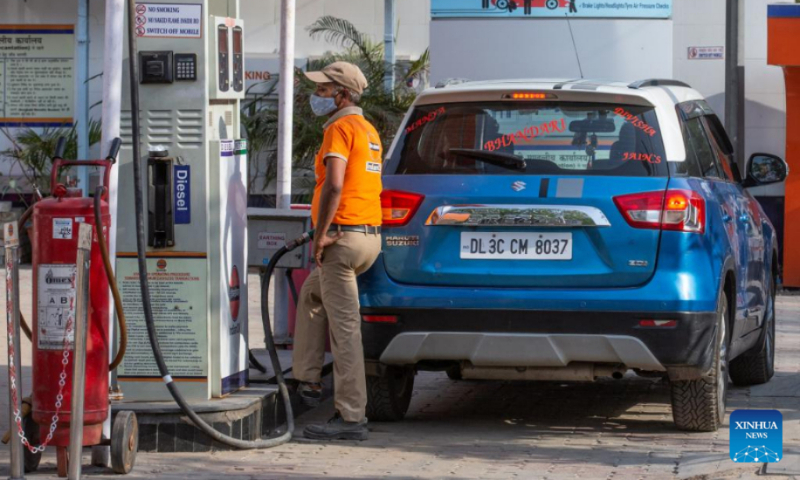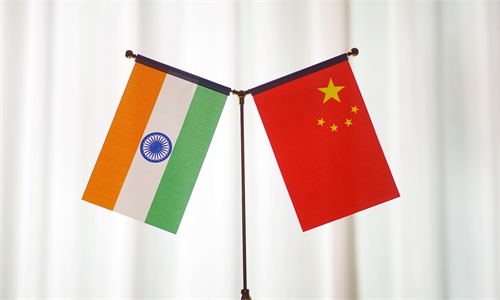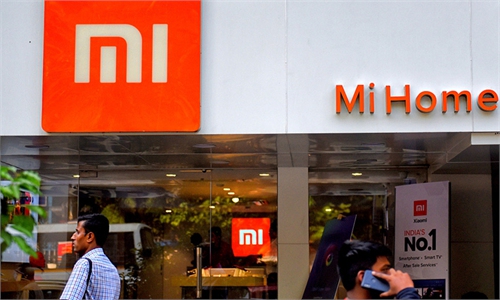
A staff member refuels a vehicle at a gas station in New Delhi, April 6, 2022. (Xinhua/Javed Dar)
A Chinese business leader in India and an expert have criticized India's business environment as Chinese carmaker Great Wall Motor reportedly shelved its $1 billion investment plan in India and laid off all employees at its local operation after falling to obtain regulatory approvals to buy a former General Motors plant as a result of the Indian government's increased scrutiny of investment from China.
India does not want Chinese-funded enterprises to enter important industries such as automobiles, Harris Liu of the Chinese Chamber of Commerce in India told the Global Times on Sunday, noting that "under India's current investment approval system, it is unrealistic for Chinese-funded companies to hope to enter relevant industries and fields in India through mergers and acquisitions."
Reuters reported earlier that Great Wall Motor has shelved the investment plan after falling to obtain regulatory approvals to buy a former General Motors plant. A spokesperson from General Motors also told India's Economic Times that the company has been unable to obtain required approvals within the required timeframe.
Great Wall said in a statement that the company would continue to study the Indian market and look for opportunities in the future, according to the Reuters report on July 1.
Instead of selling the plant to Great Wall, the Indian government hopes General Motors to either stay in the market or sell the plant to local automobile enterprises at a lower price, Liu Zongyi, secretary-general of the Research Center for China-South Asia Cooperation at the Shanghai Institutes for International Studies, noted.
He added that the US company's determination to leave the Indian market proves that the openness and business environment in India did not match its initial expectation, adding that multinational corporations need to make strategic moves wisely and cautiously on whether India can replace China as a potential investment destination.
General Motors ceased selling cars in India at the end of 2017 as part of the US automaker's restructuring plans. A General Motors spokesperson said that the company recorded "immaterial charges" in 2020 on the loss charged on account of the India exit, according to the Economic Times report.
Despite the tough situation Chinese auto companies have encountered in India, Harris Liu said that the business environment in India is more or less the same even for European and US companies, except that the Indian media are not as keen to report government action against non-Chinese firms.
General Motors is not the only international enterprises encountering obstacles in India. Tesla's entry plan to India has also been put on hold in June as the Modi government insisted Tesla must commit to manufacturing vehicles locally before it will lower tariffs.
Harris Liu also noted that the Indian auto market is very competitive with many global carmakers such as Ford and Renault are leaving or planning to leave the market.
Asked about the Great Wall Motor's deal at a press briefing on Friday, Chinese Foreign Ministry Spokesperson Zhao Lijian urged India to provide a fair, just and non-discriminatory business environment for foreign investors.



